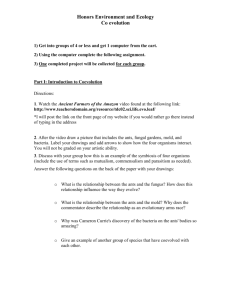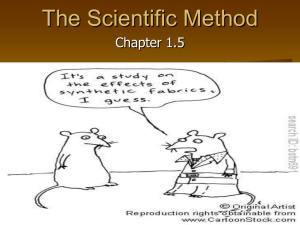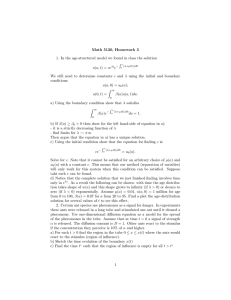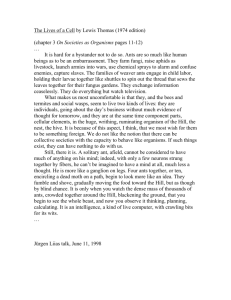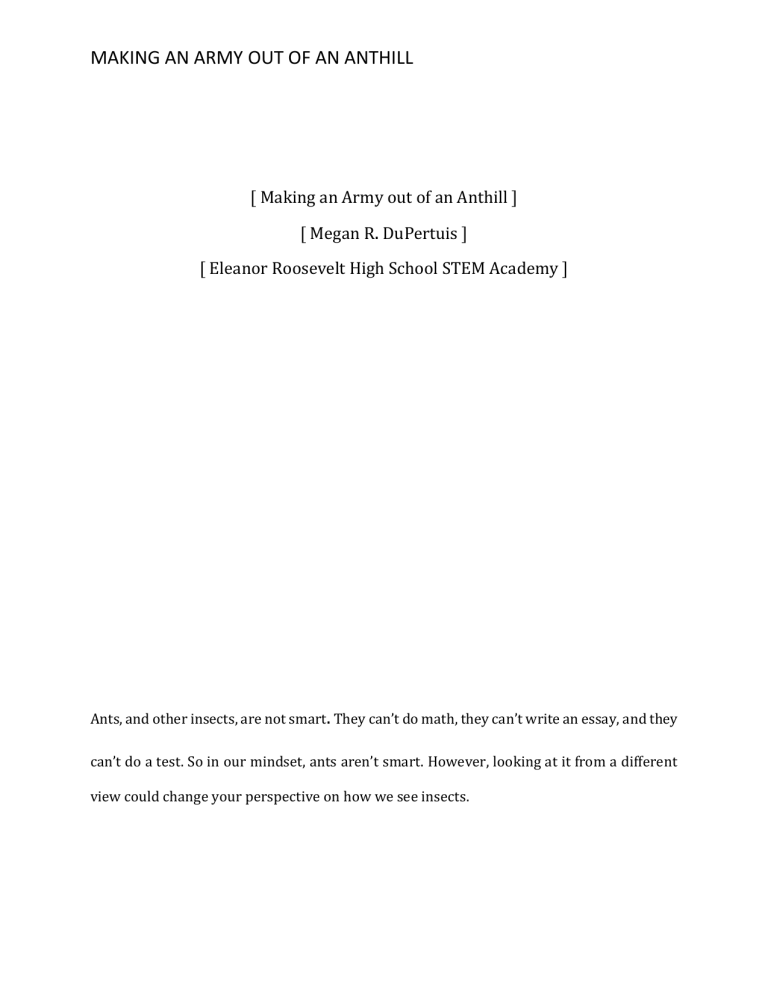
MAKING AN ARMY OUT OF AN ANTHILL [ Making an Army out of an Anthill ] [ Megan R. DuPertuis ] [ Eleanor Roosevelt High School STEM Academy ] Ants, and other insects, are not smart. They can’t do math, they can’t write an essay, and they can’t do a test. So in our mindset, ants aren’t smart. However, looking at it from a different view could change your perspective on how we see insects. MAKING AN ARMY OUT OF AN ANTHILL We, as humans, judge other’s intelligence through tests and experiments. However, there are other forms of intelligence that don’t apply to us. Many species of insects such as bees and ants, to name a few, are smart in a different way. Many people assume that ants and bees share a similar way of nest communication: a hive mind, when in fact they are closer to us. I will use ants as an example. Instead of sharing one mindset, ants will follow the smartest or more experienced of the group. Those who have found the most direct path to food or know how to avoid dangers will lead the rest of the ants to the desired destination. Now the question I want to ask is, “How fast can they learn from their mistakes? How long does it take for one ant to teach or show others what to do and what not to do?” I believe they can learn VERY fast, depending on their situation. The biggest example of ant communication is through smell, using pheromones to “talk” with other ants. Ants can also work together and cooperate very well which can lead to excellent teamwork and a discovery of the most efficient way of completing tasks. In the article ‘Ant Intelligence Update’ by Jon Lieff, he states, “Ants navigate long distances, find food, communicate and avoid predators. They care for their family similar to any mammal. When finding a new home, ants take advice from their more experienced brethren who had memorized alterative hive locations.” Ants respect and follow one another, using advanced navigation skill and their own effort put in to help those who come later. They will mark out paths, find sources of food, care for the queen, and teach the younger generation how to contribute to the nest. Many people incorrectly assume that in an ant colony, the queen controls the others, when in actuality that isn’t true. The queen only lays eggs, she has no power or authority over the MAKING AN ARMY OUT OF AN ANTHILL rest of the colony. Ants will care for the queen by giving her food and moving the eggs or larvae to a different section of the nest, but they do so of their own will, not the control of another. MAKING AN ARMY OUT OF AN ANTHILL Everett, P. (2005, March 05). Learning from the collective. Retrieved from http://news.bbc.co.uk/2/hi/science/nature/4319739.stm Gordon, D. (2017, January 21). Two Lessons We Can Learn From Ant Colonies. Retrieved from https://www.huffingtonpost.com/deborah-gordon2/two-lessons-we-can-learn_b_9039230.html Ant Intelligence Update. (2015, February 19). Retrieved from http://jonlieffmd.com/blog/ant-intelligence-update
